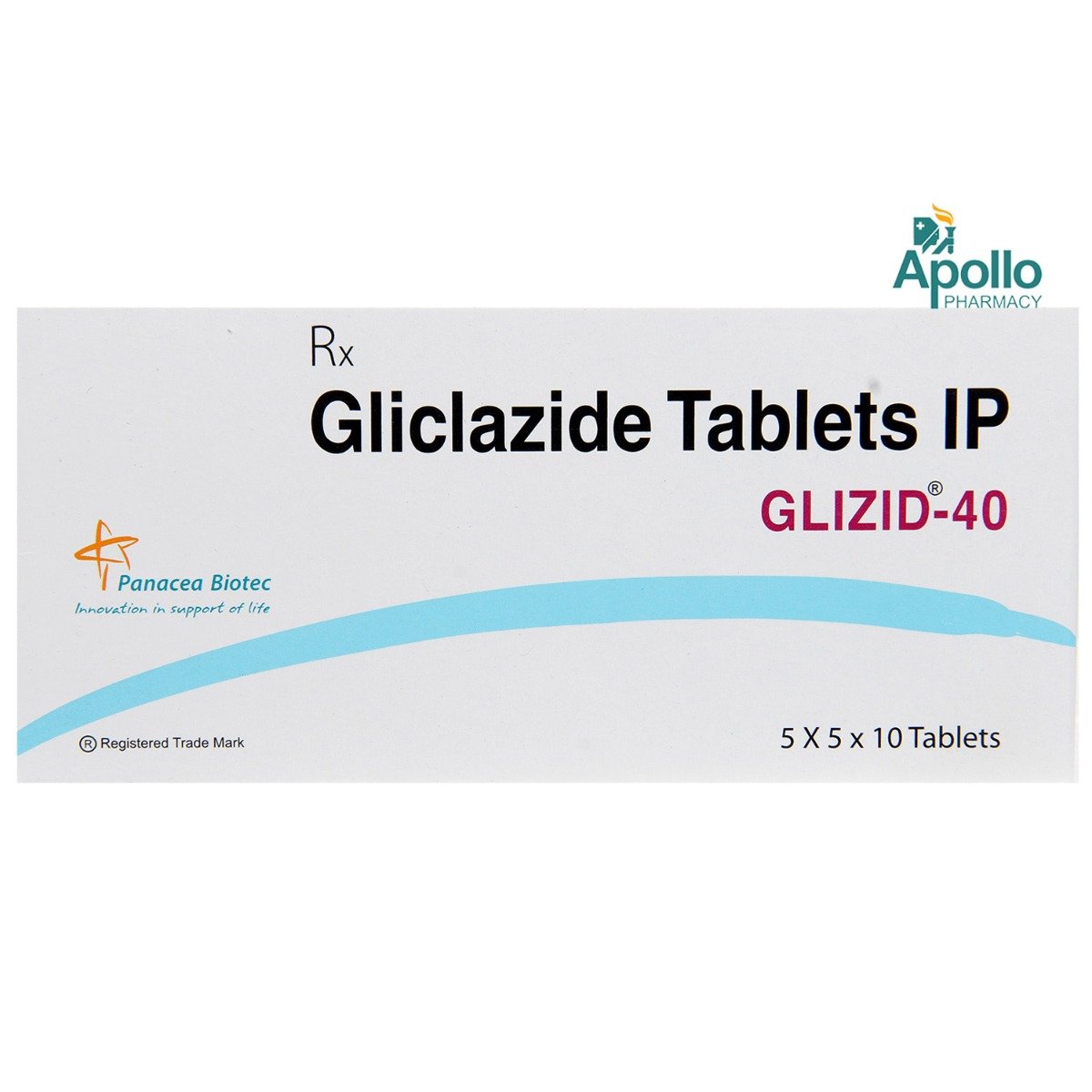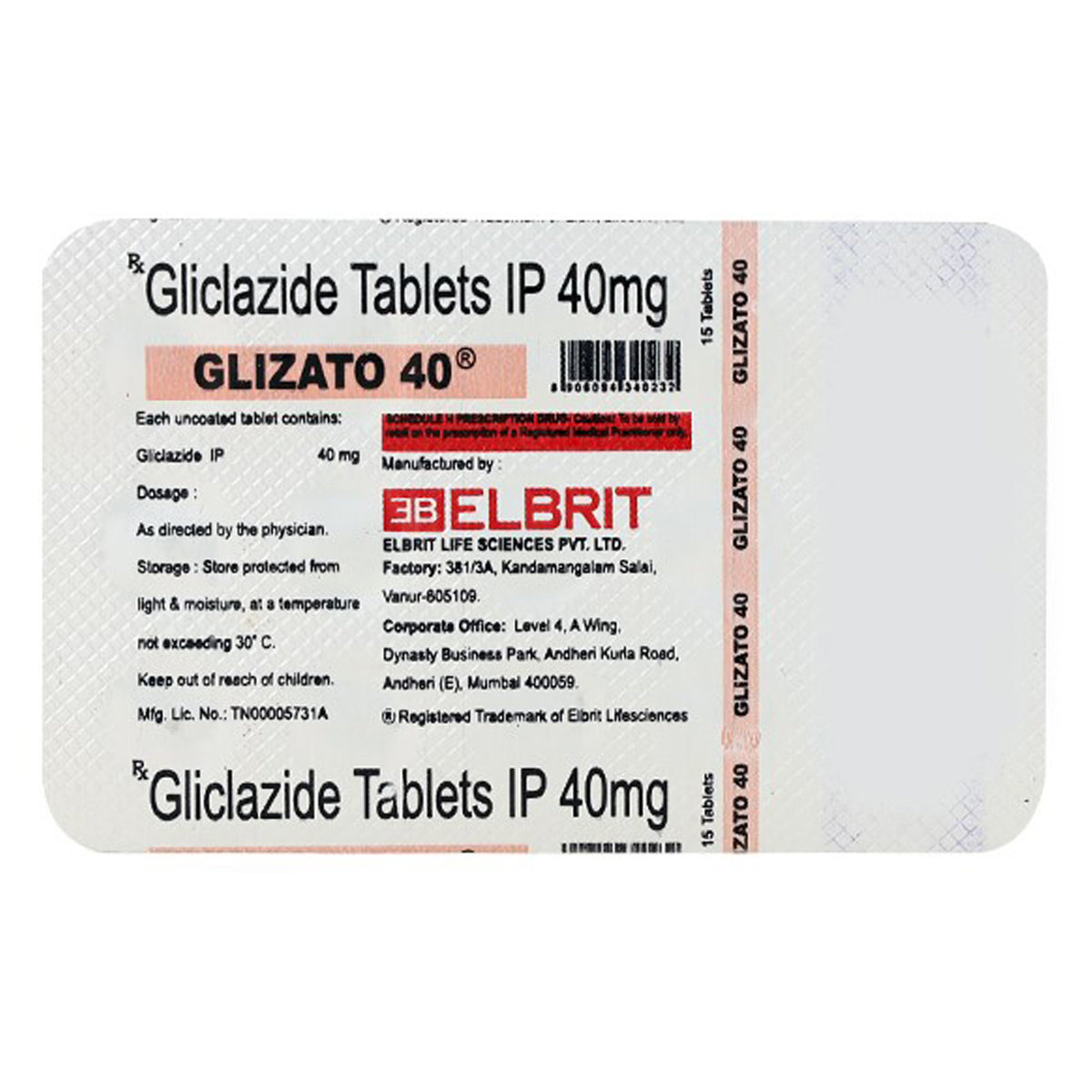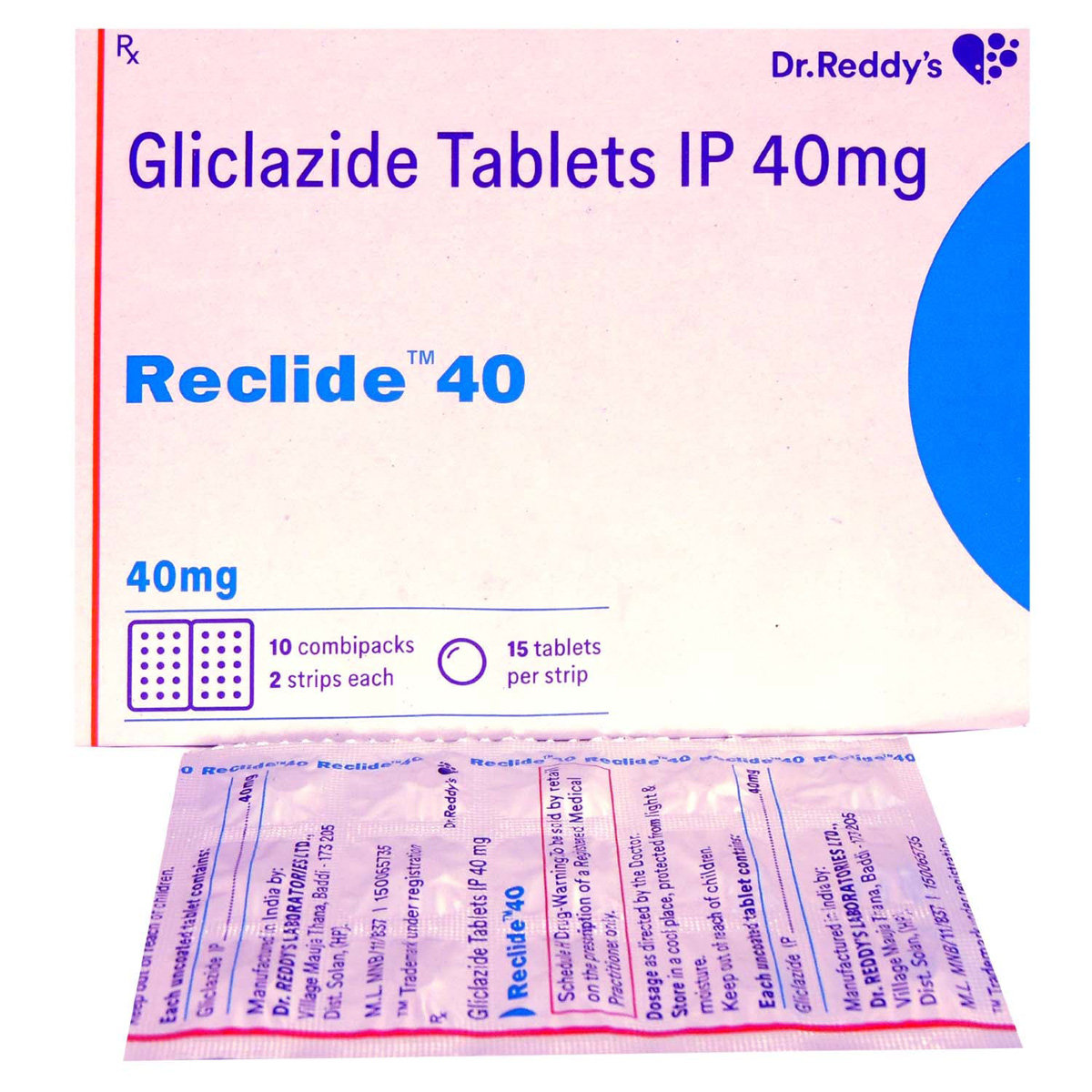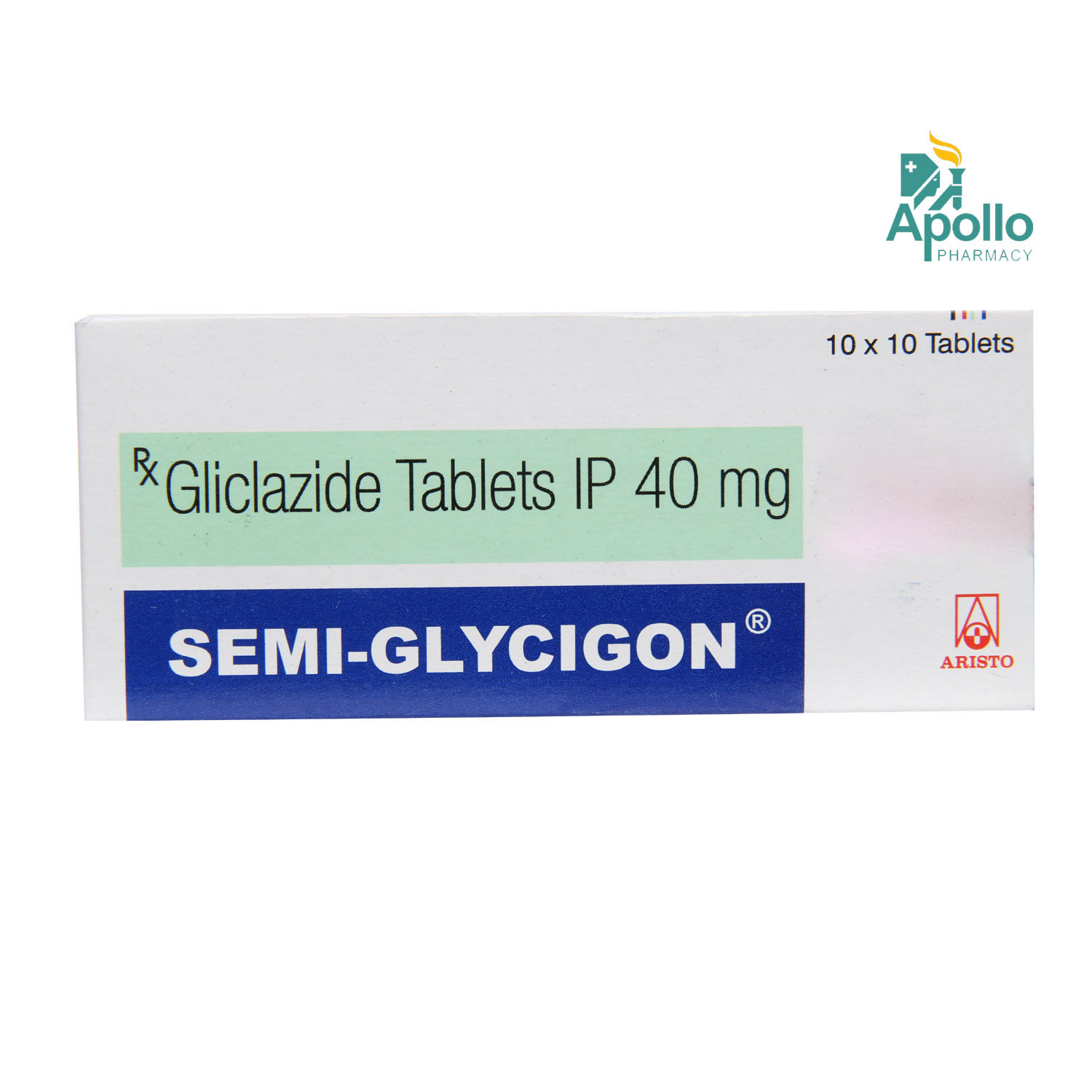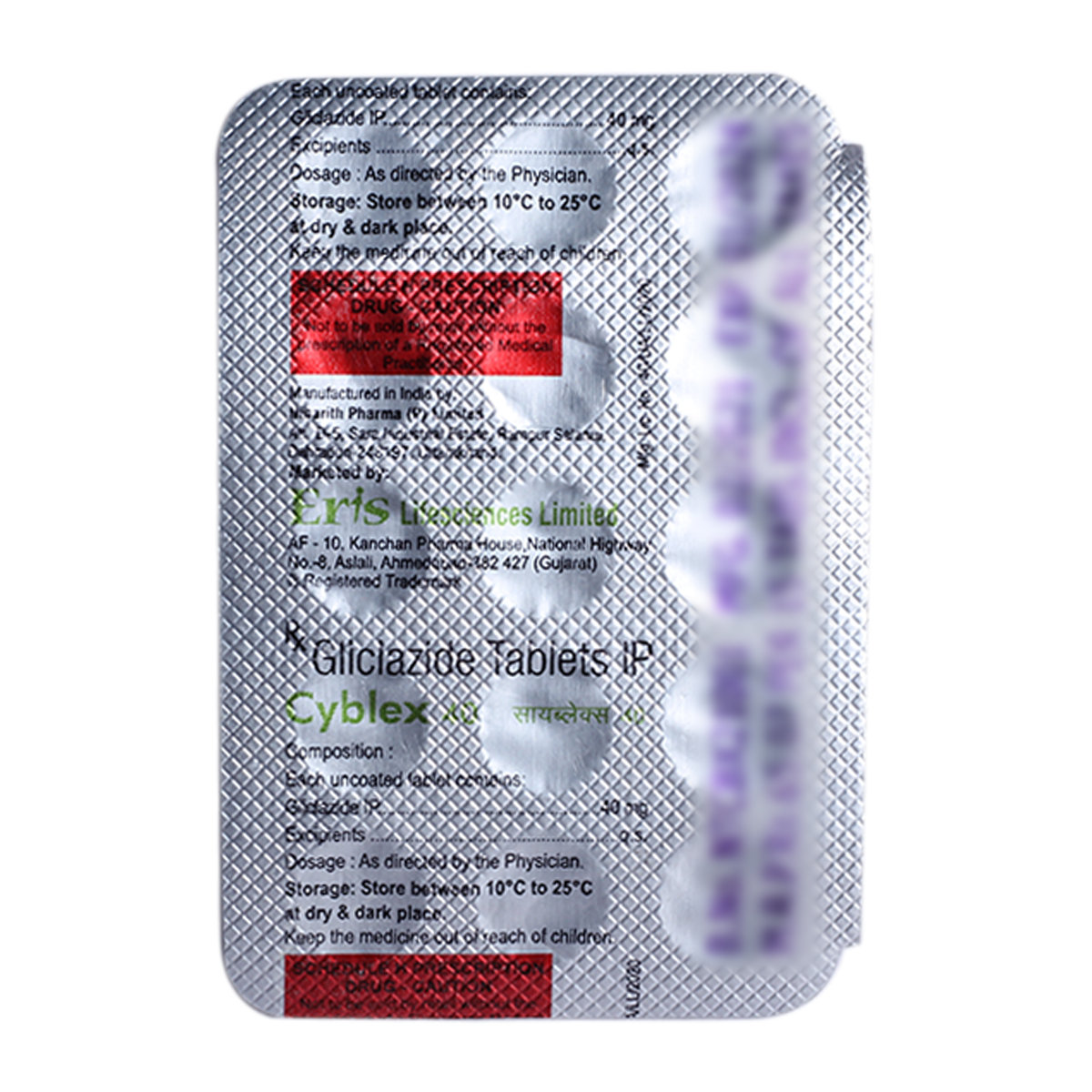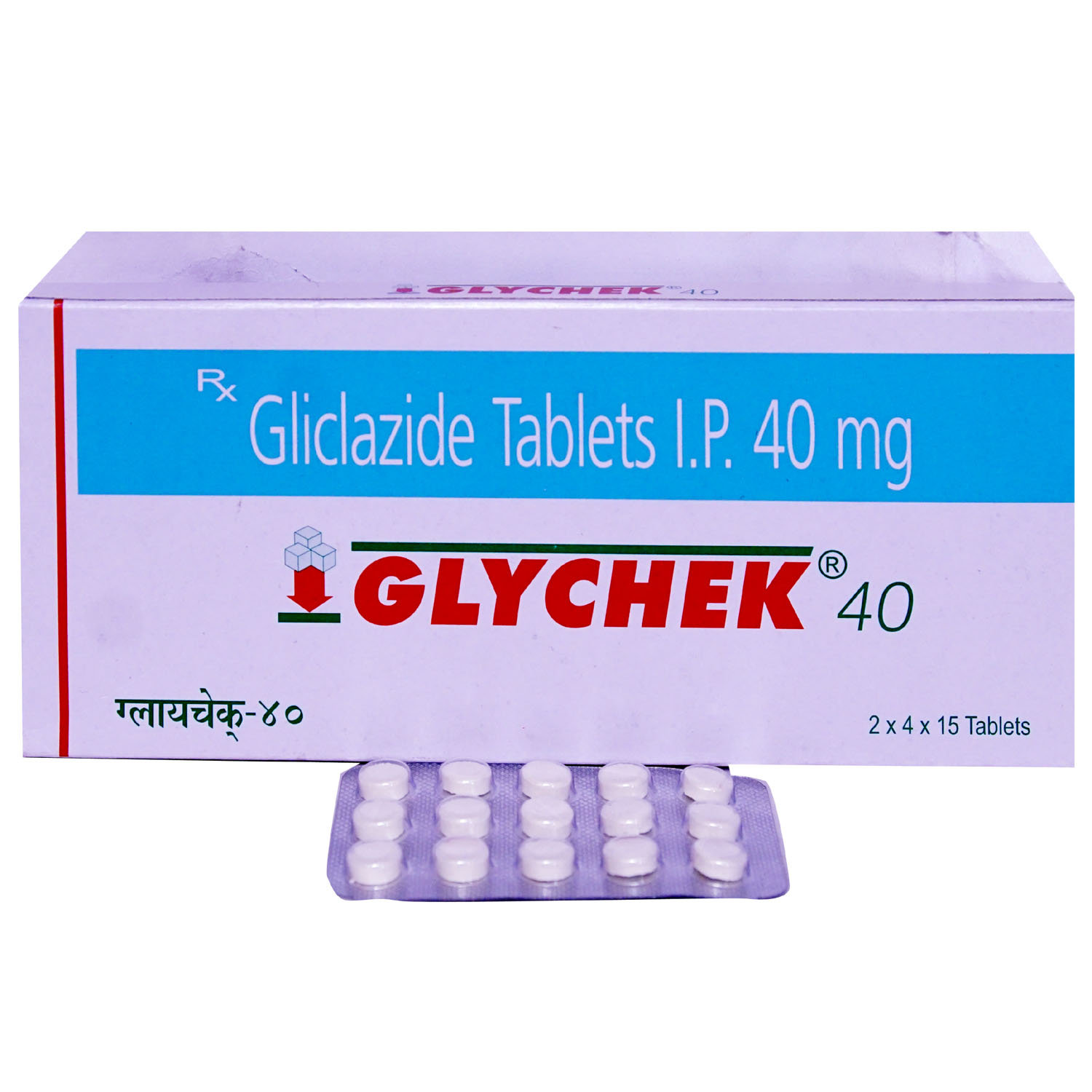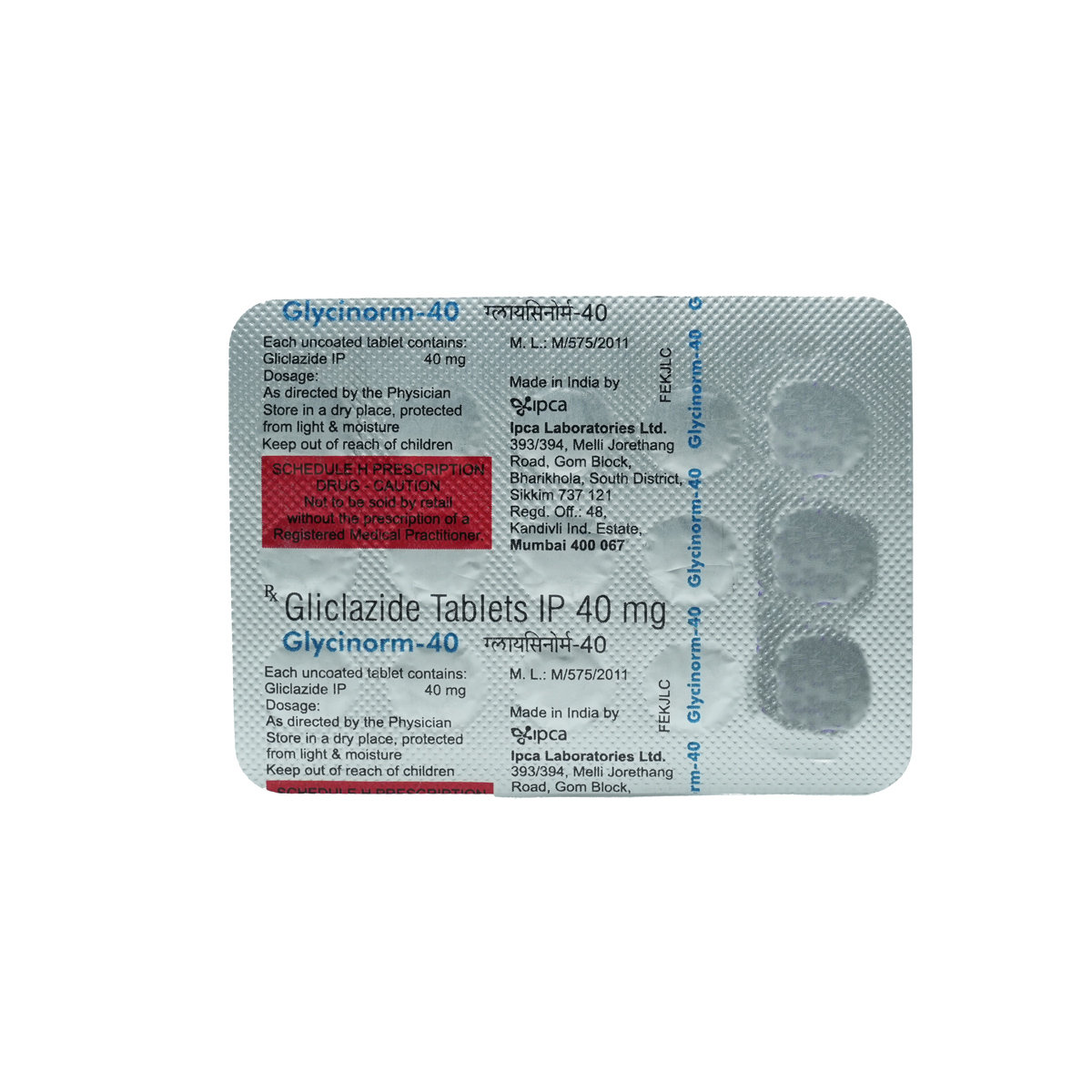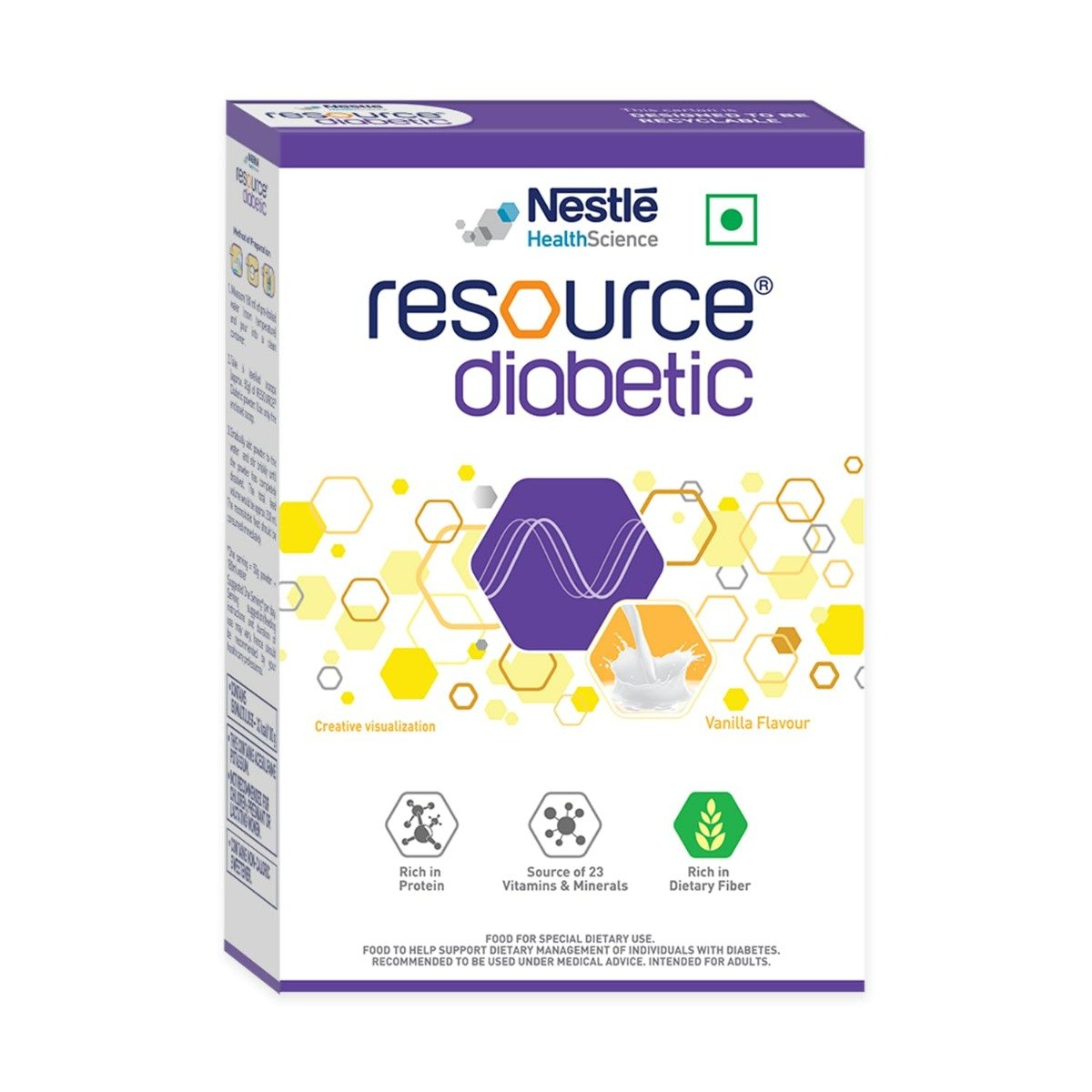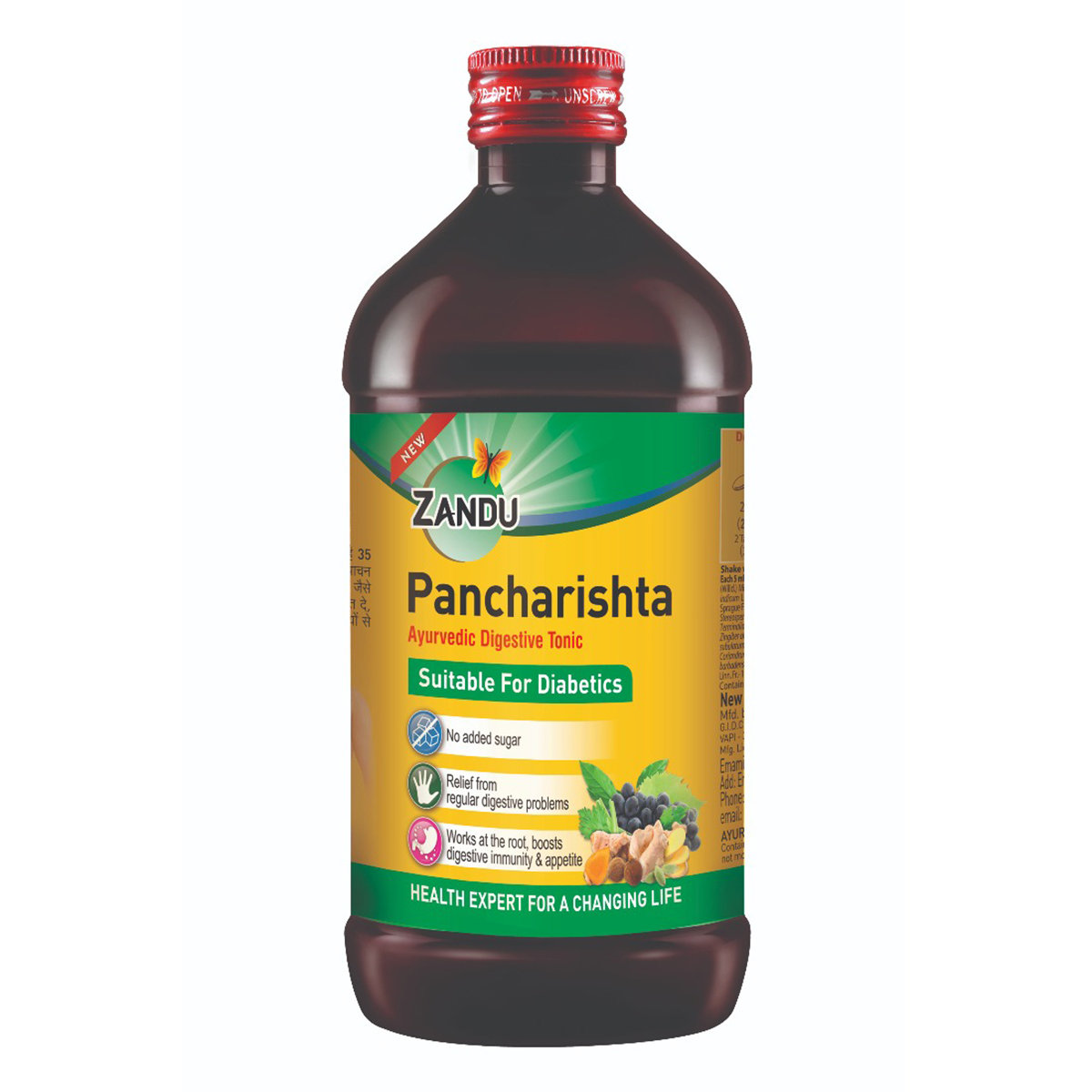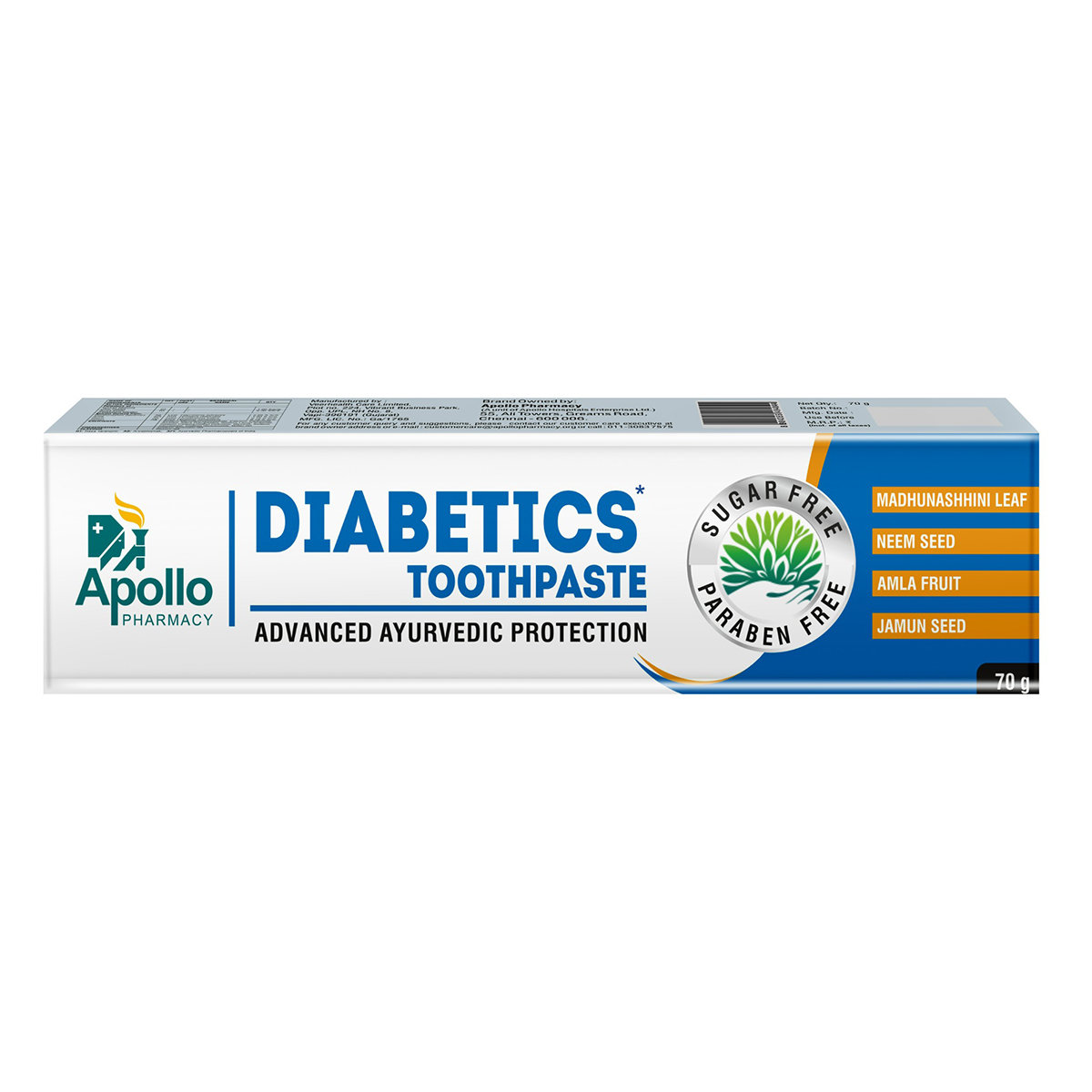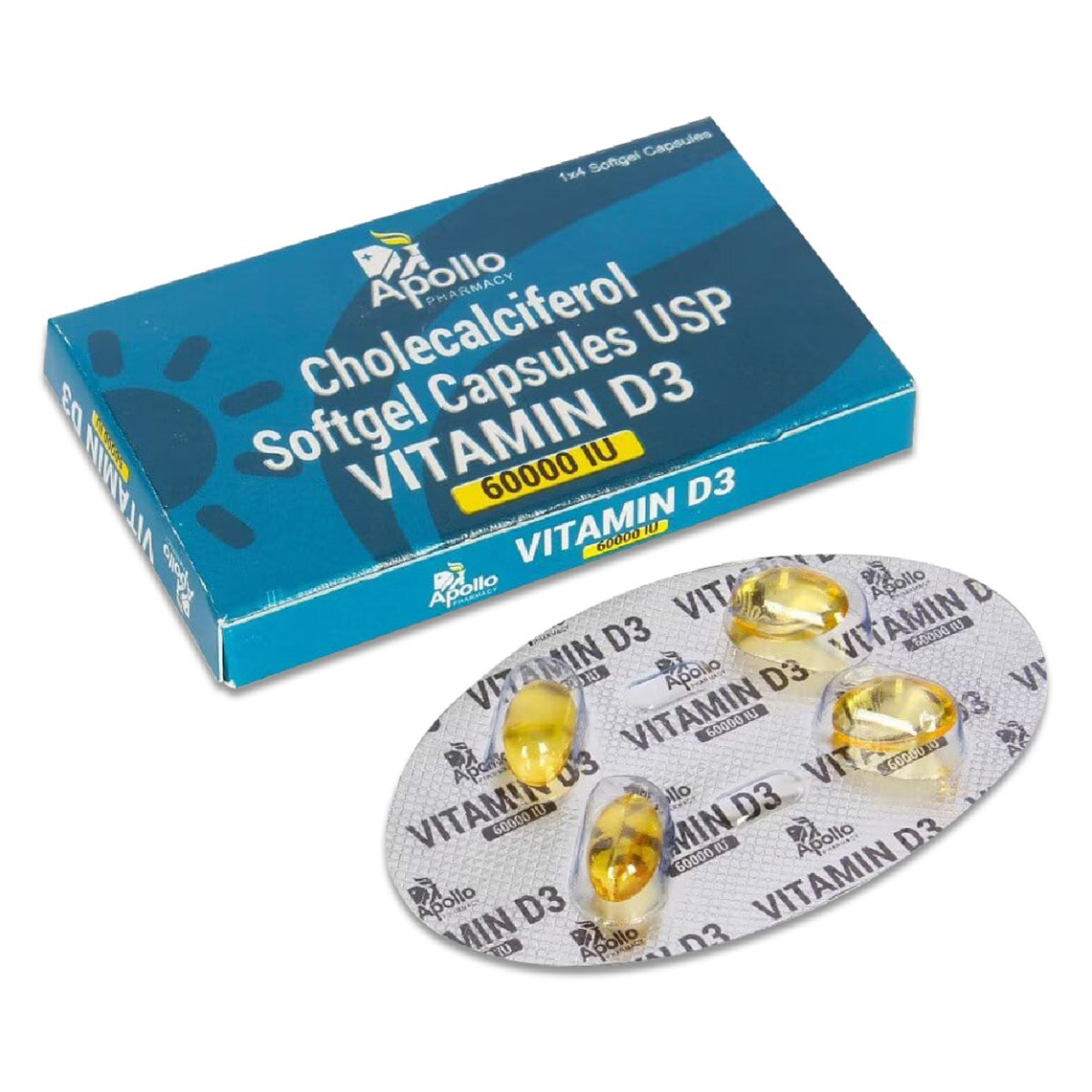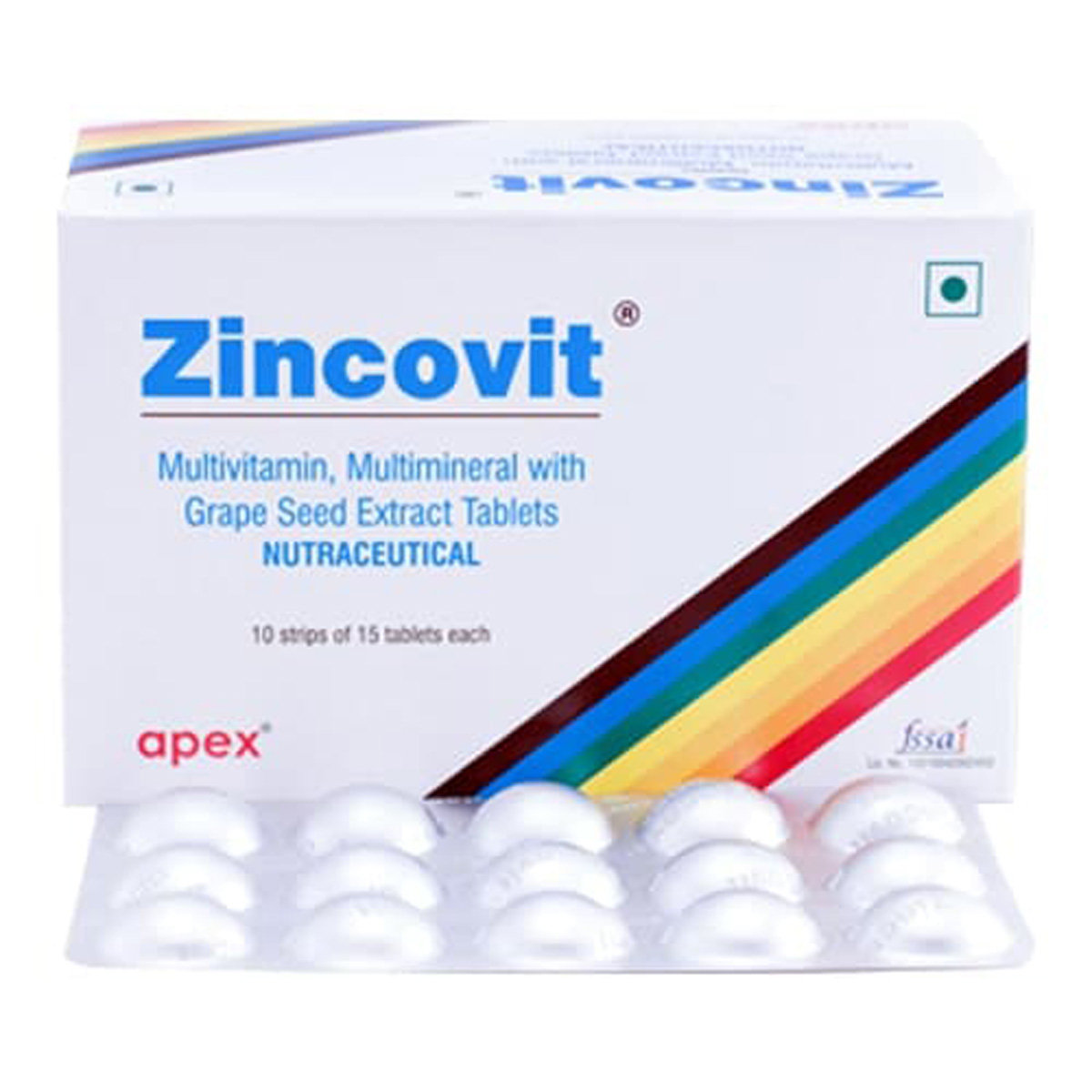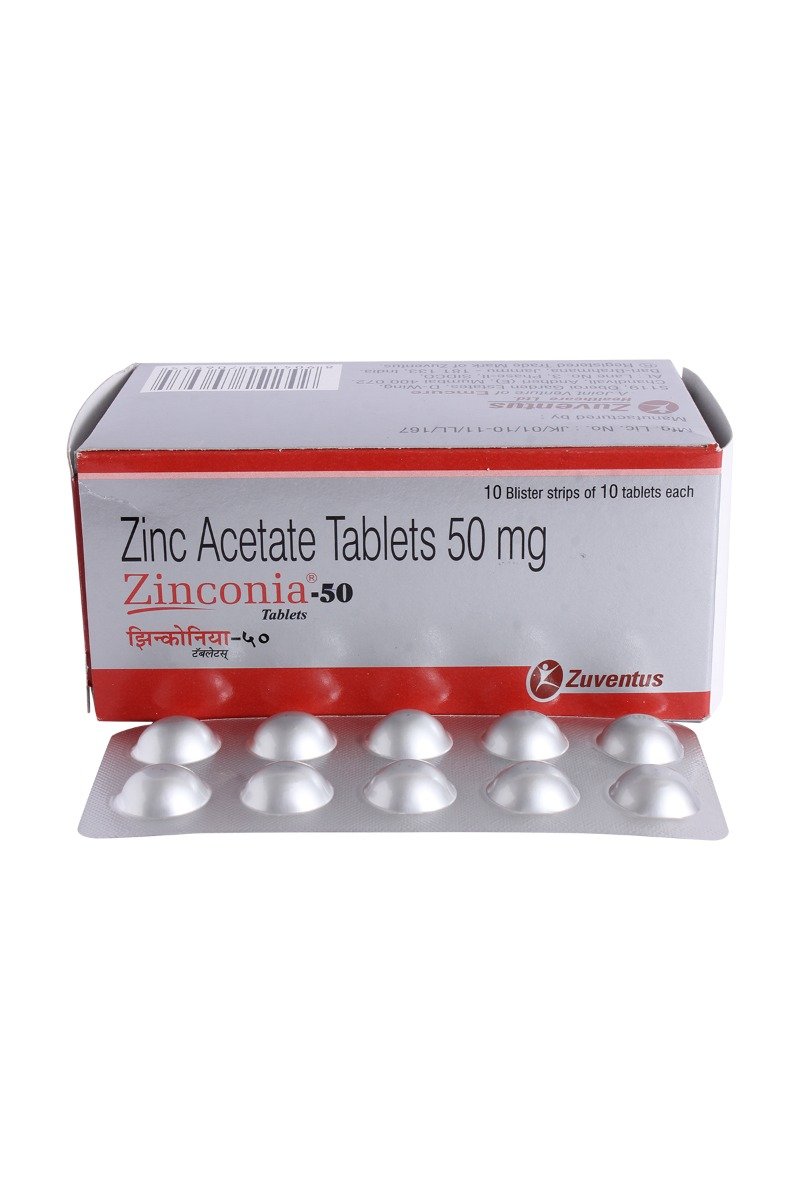Glix 40 mg Tablet

MRP ₹53
(Inclusive of all Taxes)
₹8.0 Cashback (15%)
know your delivery time
Provide Delivery Location
Composition :
Manufacturer/Marketer :
Consume Type :
Expires on or after :
Return Policy :

Secure Payment

Trusted by 8 Crore Indians

Genuine Products
Therapeutic Class
Country of origin
Manufacturer/Marketer address
Author Details
We provide you with authentic, trustworthy and relevant information
FAQs
Disclaimer
Alcohol
Safe if prescribed
Do not consume alcohol while taking Glix 40 mg Tablet . Taking Glix 40 mg Tablet with alcohol can cause hypoglycemia. So, keep your doctor informed if you drink alcohol.
Pregnancy
Consult your doctor
As the data around the use of Glix 40 mg Tablet in pregnant women is limited, the use of Glix 40 mg Tablet in pregnancy is restricted. Please consult your doctor for advice before using Glix 40 mg Tablet .
Breast Feeding
Consult your doctor
Tell your doctor if you are breastfeeding. Do not breastfeed while you are taking Glix 40 mg Tablet without advice from your doctor. If you take Glix 40 mg Tablet while breastfeeding, there's a risk of your baby getting low blood sugar.
Driving
Safe if prescribed
Glix 40 mg Tablet may cause hypoglycemia (low blood sugar levels), whose symptoms include unusual sleepiness, shivering, palpitations, and sweating. This may affect your ability to drive. Use caution while driving or doing anything that requires concentration or mental alertness.
Liver
Consult your doctor
Tell your doctor before receiving the Glix 40 mg Tablet if you have a history of liver diseases/conditions. Your doctor may adjust your dose depending upon your current kidney conditions.
Kidney
Consult your doctor
Tell your doctor before receiving the Glix 40 mg Tablet if you have a history of kidney diseases/conditions. Your doctor may adjust your dose depending upon your current kidney conditions.
Children
Safe if prescribed
Glix 40 mg Tablet is not recommended for children below the age of 18 years. The safety and effectiveness of Glix 40 mg Tablet have not been established in children. So, only take Glix 40 mg Tablet if the doctor has prescribed you.
Product Substitutes
About Glix 40 mg Tablet
Glix 40 mg Tablet belongs to the class of drugs called ''oral hypoglycemic'' used to treat type 2 diabetes mellitus when diet and exercise alone cannot control their blood sugar levels. Type 2 diabetes is a chronic or lifelong disorder that affects the way our body processes glucose. People with type 2 diabetes either do not produce enough insulin, or the insulin produced cannot perform its function in the body (insulin resistance). Middle-aged or older individuals are most likely to suffer from type 2 diabetes, so it is also known as adult-onset diabetes.
Glix 40 mg Tablet contains gliclazide. It works by increasing the amount of insulin released by the pancreas. It stimulates insulin secretion from the pancreas and decreases blood sugar levels. Glix 40 mg Tablet prevents the blood glucose level from rising to very high levels, thus keeping your blood sugar level under control.
Glix 40 mg Tablet should be taken in the dose and duration your doctor advises. In some cases, you may experience certain common side effects, such as stomach ache or indigestion, feeling sick (nausea), vomiting (diarrhoea), and constipation. Most of these side effects do not require medical attention and resolve gradually over time. However, please consult your doctor if you experience these side effects persistently.
Do not stop taking Glix 40 mg Tablet on your own since it may cause a rise in your blood sugar levels leading to other health issues like blindness, kidney damage, and loss of limbs. Before starting Glix 40 mg Tablet , let your doctor know if you are pregnant or planning to get pregnant or breastfeeding. And also, tell the doctor if you have/had any medical history of heart, liver, and kidney diseases, glucose-6- phosphate dehydrogenase (G6PD) deficiency (abnormality of red blood cells), and haemolytic anaemia. Avoid alcohol consumption while taking Glix 40 mg Tablet ; it might increase the side effects (hypoglycemia). Inform your doctor about all the medicine you are taking and your health condition to rule out any unpleasant side effects. Glix 40 mg Tablet works best when coupled with a healthy lifestyle like losing weight if you are overweight (BMI >25), eating fewer calories (low fat and sugary food), and being more physically active (at least 150 min of activity every week).
Uses of Glix 40 mg Tablet
Medicinal Benefits Mweb
Key Benefits
Glix 40 mg Tablet plays a vital role in managing diabetes and achieving good control of blood sugar levels. Glix 40 mg Tablet is a class of medications called a sulfonylurea, which decreases raised blood sugar levels by stimulating insulin release from the beta cells located in the pancreas (insulin-secreting organ). In a nutshell, Glix 40 mg Tablet prevents the blood glucose level from rising to very high levels, thus keeping your blood sugar level under control. Glix 40 mg Tablet plays a vital role in controlling blood sugar levels and prevents serious complications of diabetes like retinopathy (eyesight loss), nephropathy (kidney problems), neuropathy (nerve damage), diabetic foot ulcer and delayed wound healing. Glix 40 mg Tablet shows optimum effects when taken along with healthy lifestyle changes like weight loss, a healthy diet, and regular exercise.
Directions for Use
Side Effects of Glix 40 mg Tablet
- Stomach ache or indigestion
- Feeling sick (nausea)
- Being sick (vomiting)
- Diarrhoea
- Constipation
- Hypoglycemia (low blood sugar levels)
Drug Warnings
Glix 40 mg Tablet should not be used in patients with type 1 diabetes or diabetic ketoacidosis. Do not take Glix 40 mg Tablet if you are allergic to Glix 40 mg Tablet or any ingredient of Glix 40 mg Tablet , have severe liver or kidney problems, have severe thyroid or adrenal gland problems, or have ever had a diabetic coma. Some diabetic patients taking Glix 40 mg Tablet may develop a rare but serious condition called lactic acidosis. In this condition, too much lactic acid is accumulated in the blood. So, your liver and kidney's proper functioning is required to eliminate excess lactic acid from the blood. Consult your doctor and take only if prescribed under medical supervision. Glix 40 mg Tablet shows optimum effects when taken along with healthy lifestyle changes like weight loss, regular exercise, healthy diet.
Drug-Drug Interactions
Drug-Drug Interactions
Login/Sign Up
Drug-Food Interactions
Drug-Food Interactions
Login/Sign Up
Drug-Diseases Interactions
Drug-Diseases Interactions
Login/Sign Up
Drug-Drug Interactions Checker List
- CAPTOPRIL
- ENALAPRIL
- MICONAZOLE
- FLUCONAZOLE
- RANITIDINE
- SELEGILINE
- PHENELZINE
- IBUPROFEN
- PHENYLBUTAZONE
- HYDROCORTISONE
- PREDNISOLONE
- WARFARIN
- CLARITHROMYCIN
Habit Forming
Diet & Lifestyle Advise
- Fill your half plate with starchy veggies, a quarter with proteins, and a quarter with whole grain.
- Eat at regular intervals. Do not take a long gap between meals or snacks.
- Monitor your blood sugar level regularly, especially when there are a lot of fluctuations.
- Lose weight gradually to achieve a healthy body mass index ( 18.5 to 24.9)
- Reduce saturated fat intake in food like chips, crisps, pastries, biscuits, and samosas. Choose omega-3 fatty acid-containing oils for daily cooking. For frying, you may use palm oil, groundnut oil, mustard oil, rice bran oil, and safflower oil.
- Do not take stress as it may elevate your blood sugar level. You may adopt stress management techniques like mindfulness, yoga, or meditation to control stress-related blood sugar changes.
- Keep your blood pressure as normal (120/80mmHg) as possible, as it reduces the risk of cardiovascular diseases in diabetes patients.
- Take the medication as directed by the doctor and at regular intervals if you take Glix 40 mg Tablet more than once per day. Do not use other over-the-counter medicines, herbal or vitamin supplements without informing your pharmacist or doctor when you take Glix 40 mg Tablet .
- Your doctor also guides you on noticing and managing the early symptoms of high/low blood sugar levels.
All Substitutes & Brand Comparisons
RX
Glicsaan 40mg Tablet 10's
Saan Labs
₹30.5
(₹2.75 per unit)
42% CHEAPERRX
Diabend 40 Tablet 10's
Bal Pharma Ltd
₹34
(₹3.06 per unit)
35% CHEAPERRX
Glizid 40 Tablet 10's
Panacea Biotec Ltd
₹35
(₹3.15 per unit)
33% CHEAPER

Have a query?
Buy best Diabetics products by
Torrent Pharmaceuticals Ltd
Sun Pharmaceutical Industries Ltd
Eris Life Sciences Ltd
Intas Pharmaceuticals Ltd
Lupin Ltd
Micro Labs Ltd
Mankind Pharma Pvt Ltd
Lloyd Healthcare Pvt Ltd
Alkem Laboratories Ltd
Abbott India Ltd
Glenmark Pharmaceuticals Ltd
Cipla Ltd
Macleods Pharmaceuticals Ltd
Wockhardt Ltd
Dr Reddy's Laboratories Ltd
Primus Remedies Pvt Ltd
USV Pvt Ltd
Aristo Pharmaceuticals Pvt Ltd
Emcure Pharmaceuticals Ltd
Alembic Pharmaceuticals Ltd
Ipca Laboratories Ltd
La Renon Healthcare Pvt Ltd
Ajanta Pharma Ltd
Medley Pharmaceuticals Ltd
East West Pharma India Pvt Ltd
Elbrit Life Sciences Pvt Ltd
Corona Remedies Pvt Ltd
Hbc Life Sciences Pvt Ltd
Sinsan Pharmaceuticals Pvt Ltd
Ranmarc Labs
Mitoch Pharma Pvt Ltd
Zydus Healthcare Ltd
Sanofi India Ltd
Akumentis Healthcare Ltd
Fusion Health Care Pvt Ltd
Unison Pharmaceuticals Pvt Ltd
Jubilant Lifesciences Ltd
Novo Nordisk India Pvt Ltd
Tas Med India Pvt Ltd
Blue Cross Laboratories Pvt Ltd
Msn Laboratories Pvt Ltd
Eswar Therapeutics Pvt Ltd
Indoco Remedies Ltd
Q Check Pharmaceuticals
Alteus Biogenics Pvt Ltd
Anthem Bio Pharma
Franco Indian Pharmaceuticals Pvt Ltd
Systopic Laboratories Pvt Ltd
Panacea Biotec Ltd
Zydus Cadila
Biocon Ltd
Edoc Life Sciences Pvt Ltd
Koye Pharmaceuticals Pvt Ltd
Arkas Pharma Pvt Ltd
Diacardus Pharmacy Pvt Ltd
Elinor Pharmaceuticals (P) Ltd
Remedy Life Sciences Pvt Ltd
Saan Labs
Talent India Pvt Ltd
Jarun Pharmaceuticals Pvt Ltd
Capital Pharma
Shrrishti Health Care Products Pvt Ltd
FDC Ltd
Leeford Healthcare Ltd
Nirvana India Pvt Ltd
Elder Pharmaceuticals Ltd
Eli Lilly and Company (India) Pvt Ltd
Glynis Pharmaceuticals Pvt Ltd
Zuventus Healthcare Ltd
Arrient Healthcare Pvt Ltd
Cadomed Pharmaceuticals India Pvt Ltd
Orris Pharmaceuticals
Akesiss Pharma Pvt Ltd
Bal Pharma Ltd
Biochem Pharmaceutical Industries Ltd
Knoll Healthcare Pvt Ltd
Lippon Pharma Pvt Ltd
Morepen Laboratories Ltd
Neucure Lifesciences Pvt Ltd
Opsis Care Lifesciences Pvt Ltd
Wallace Pharmaceuticals Pvt Ltd
Acmedix Pharma Llp
Converge Biotech Pvt Ltd
Erinyle Pharma
Indiabulls Pharmaceuticals Pvt Ltd
Ozone Pharmaceuticals Ltd
Retra Life Science Pvt Ltd
Alvio Pharmaceuticals Pvt Ltd
Geneaid Pharmaceuticals
Heal (India) Laboratories Pvt Ltd
Olcare Laboratories Pvt Ltd
Vasu Organics Pvt Ltd
Kotak Life Sciences
Lakshya Life Sciences Pvt Ltd
Proqol Health Care Pvt Ltd
Sanz Pharmaceuticals
Daylon healthcare pvt Ltd
Mcronus Lifescience Pvt Ltd
Natco Pharma Ltd
Orsim Pharma
Frequently Bought Together
Customers Also Bought
Recommended for a 30-day course: 3 Strips




